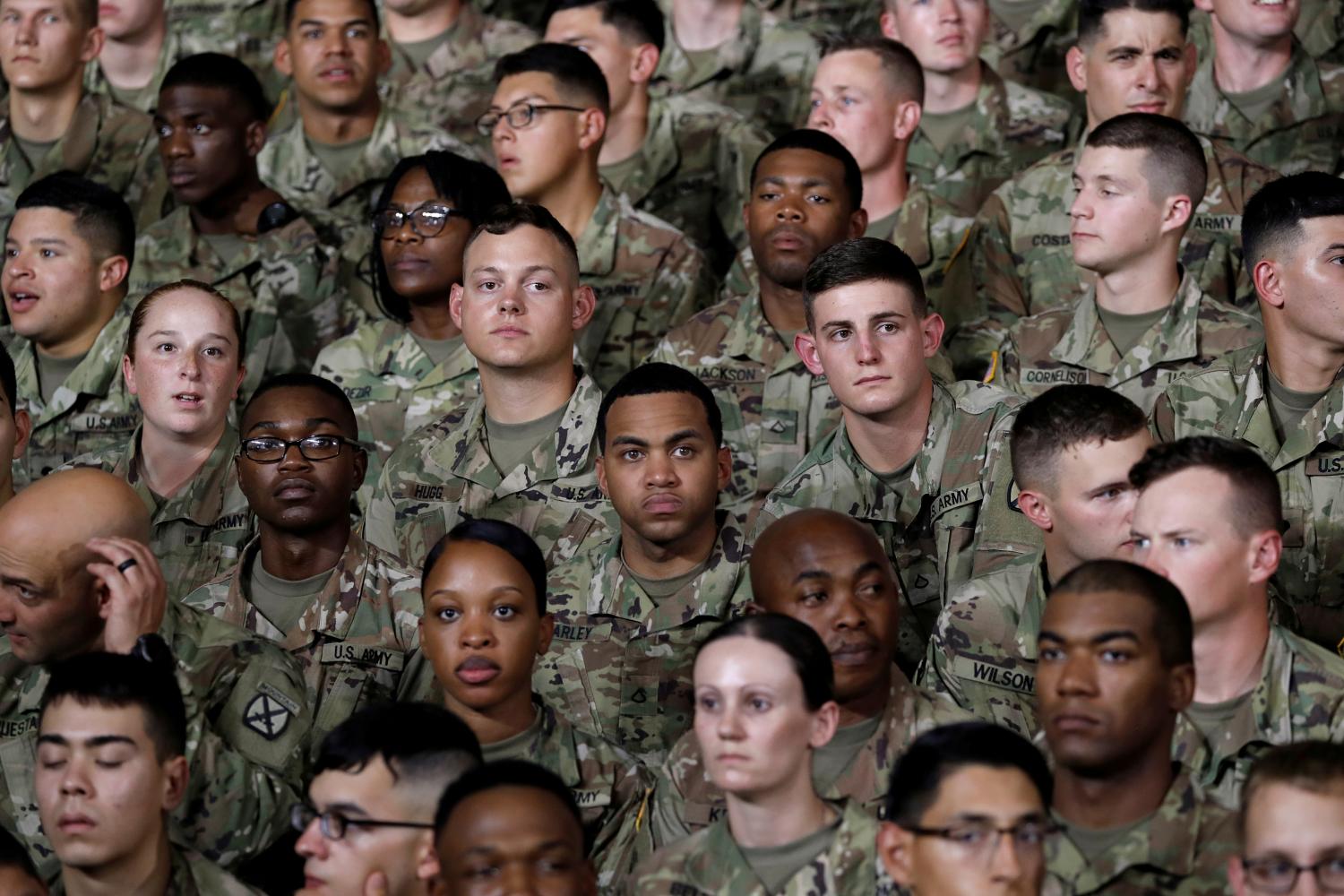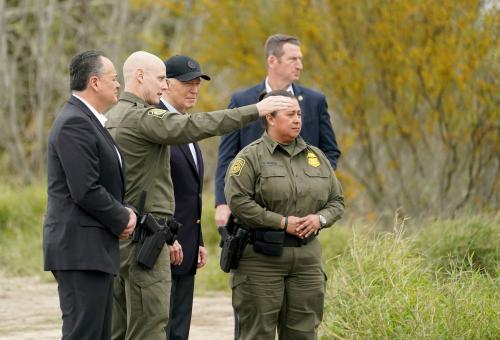The following is a summary of the seventh session of the Congressional Study Group on Foreign Relations and National Security, a program for congressional staff focused on critically engaging the legal and policy factors that define the role that Congress plays in various aspects of U.S. foreign relations and national security policy.
On Sept. 11, 2020, the Congressional Study Group on Foreign Relations and National Security convened online to discuss the issue of to what extent Congress is able to exercise control over the military. In recent years, Congress has enacted statutes that seek to set limits on when the president may remove deployments of U.S. soldiers, including from long standing posts in Germany and South Korea. Are such laws valid exercises of Congress’s own constitutional authority over the funding of and establishment of rules for the military? Or do they infringe on the president’s own constitutional authority as commander in chief?
To discuss these questions, the study group was joined by two outside experts: Professor Zachary Price of the University of California, Hastings College of Law; and Professor Ashley Deeks of the University of Virginia School of Law, who also previously served as the Assistant Legal Adviser for Political-Military Affairs at the U.S. Department of State. Prior to the session, they circulated several suggested pieces of background reading, including:
- Ashley Deeks, “Can Congress Constitutionally Restrict the President’s Troop Withdrawals?,” Lawfare (Feb. 9, 2019);
- Zachary Price, “Overriding Trump on Troop Withdrawals,” Take Care (Oct. 10, 2019);
- Zachary Price, “Congress Has Broad Power to Structure the Military—And Should Use It,” Lawfare (Sept. 2, 2020) (which previewed a longer article, Congress’s Power Over Military Offices, then forthcoming in the Texas Law Review); and
- Testimony by now-Judge David Barron before the Senate Judiciary Committee on “Exercising Congress’s Constitutional Power to End a War” (Jan. 28, 2007).
After the study group session, Price and Deeks joined the study group coordinator Scott R. Anderson to record an episode of the Lawfare podcast on the issues discussed in the study group.
Price began the conversation by noting that, while the Constitution makes the president the commander in chief of the military, it also gives Congress substantial authorities related to the military, including to “raise and support” Armies and Navies through appropriations and to “make rules” for their government and regulation. Over history, he noted, these authorities have generally allowed Congress to structure the military chain of command, allocate duties to specific personnel, and even insulate military personnel from removal, giving Congress the ability to impose political costs for certain outcomes. In addition, Congress has the authority to establish military units for certain purposes and to set limits on how they should be used. Given that Congress also has the authority to mandate expenditures in other contexts, Price argued that these authorities strongly suggest that Congress can also substantially direct how the military may be deployed or used in various contexts, including by barring troop withdrawals like those reportedly being considered in Germany and South Korea.
Deeks followed by concurring that Congress has substantial authority relating to the military, but noted that the exact line between Congress’s authority and that of the president remains heavily contested. Most scholars agree that the president likely has some exclusive authority around custodial matters relating to the military, which may also extend to certain tactical decisions. The executive branch, meanwhile, has repeatedly argued that the president’s exclusive authority extends even further to various strategic decisions regarding how the military may be used. In practice, she noted, there are likely to be limits on what Congress can practically direct the president to do, as an unenthusiastic president may ultimately choose not to executive a directive effectively and thereby undermine Congress’s intended objectives. At the same time, the executive branch often faces an incentive to cooperate with directives issued by Congress even where it may believe they are unconstitutional, simply to avoid further conflict with Congress that may result in more problematic actions. Combined with the fact that courts are often resistant to adjudicating disputes between the branches in the areas of foreign relations and national security, this means that many efforts to direct or set limits on the military may ultimately result in the desired policy outcome or some sort of compromise without resolving the actual underlying legal authorities, leaving the exact line of authority unknown.
From there, the study group moved into open discussion, including ways Congress may encourage judicial resolution of such disputes, the dynamics of the accommodation process between the branches, and the relevance of treaty commitments and other international legal obligations to the separation of power between the branches.
Visit the Congressional Study Group on Foreign Relations and National Security landing page to access notes and information on other sessions.



